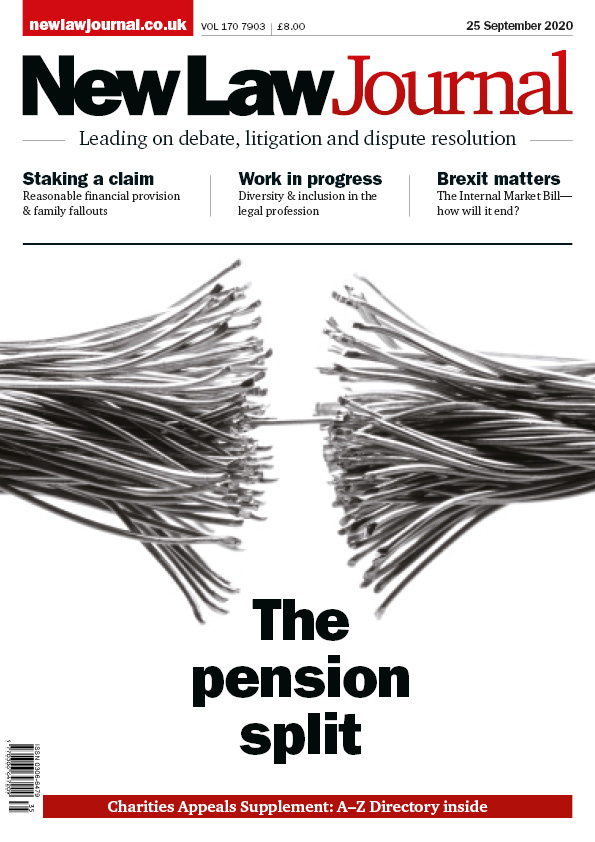
Moreover, family judgments in the past year indicate the courts are changing their approach to the division of pensions in response to the report. A prime example is the judgment in W v H (divorce financial remedies) [2020] EWFC B10, in February. According to Withers partner and co-author of the PAG report, James Copson, the judge ‘gave a text book judgment on pension sharing mirroring the recommendations of the PAG’.
However, more awareness of the issue is required. According to Grant Lazarus, 7 Harrington Street Chambers, says many practitioners are ‘quite shocked’ to learn their generalist understanding of pensions is not enough.
He highlights three PAG recommendations that he would like to see adopted as standard practice―‘using Form P to gather information about the cash equivalent value (CEV), as well as future benefits, normal retirement date, and the availability of an internal transfer; an early decision on the advantage of having a single joint pension on divorce expert (PODE); and asking the PODE focused questions in the letter of instruction’.
The PAG report, ‘A guide to the treatment of pensions on divorce’, was published in July 2019, and provides guidance on the issue for judges, lawyers and pension experts. It was prompted by a Nuffield Foundation study, which found widespread lack of confidence among practitioners on the issue, poor quality pension disclosure on court files and potentially unfair outcomes. Offsetting pensions against other capital assets was the most common way of dealing with pensions but there was little agreement about how to value pensions while case law tended to deal with big money cases and offered sometimes contradictory guidance.
For more details on the survey, recent cases and practitioners’ views, see here.









